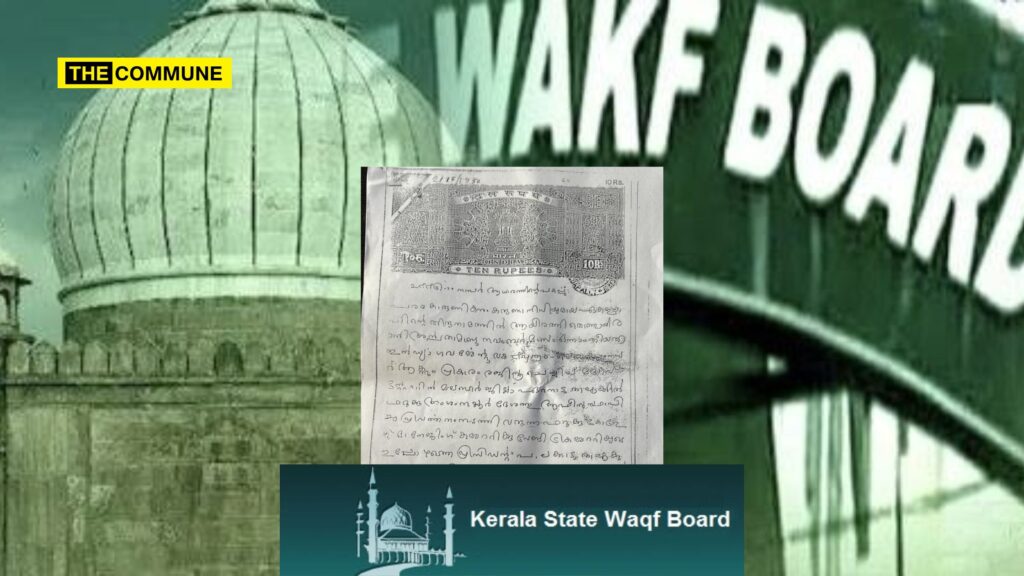A startling report by News 18 Malayalam has unveiled documentary evidence that exposes how the Waqf Board is allegedly laying claim to thousands of acres of land in Munambam, a suburb of Kochi, Kerala, that does not belong to it. The land spans over 600 families and has been the subject of a protracted dispute, with the Waqf asserting ownership.
According to the documents, in 1902, the land in question, known as the Munambam property, was leased by Rama Varma, the King of Travancore, to Abdul Sattar Musa Haji Seth, a Kutchi Memon entrepreneur. The lease included 404 acres of land and 60 acres of backwater, given as a gesture of appreciation for Seth’s contributions to the region’s economy. Importantly, the lease specifically excluded land occupied by local fishermen who had lived there for generations.
Later, Sattar Seth’s son-in-law, Muhammed Siddique Seth, and his father, Musalman Seth, registered the land in the Edapally Sub-Registrar Office, unlawfully including the area where the fishermen had resided for decades. This registration, however, did not constitute a Waqf transaction but rather a gift deed (Ishtadanam), as evidenced by two key documents.
The first document, dated November 1, 1950, shows that Muhammed Siddique Seth donated 404 acres of land to Farooq College. The second document, dated January 15, 1990, details the college’s sale of a portion of this land. These documents clearly indicate that the land was not transferred under the Waqf system but as a gift, undermining the Waqf Board’s claims to the property.
The documents also highlight that a critical condition for land to be considered Waqf is that the grantor can impose no additional conditions. Since the land in question was transferred with specific conditions, it cannot be classified as Waqf property.
The revelations raise serious questions about the legality of the Waqf Board’s claims in the Munambam land dispute. Despite these irrefutable proofs, the Waqf Samrakshana Vedhi (Waqf Protection Front) and others continue to assert ownership. This suggests that the Waqf Board, emboldened by institutional backing, may be making illegal claims with little opposition or accountability.
In light of this, many are now questioning the role of political figures who have opposed reforms to the Waqf Bill, which could potentially put an end to such controversial land disputes. The ongoing controversy in Munambam exposes the deep-rooted issues within the management of Waqf property in India and the need for urgent reforms.
Documentary evidence with NEWS 18 Malayalam exposes how Waqf is claiming thousands of acres of land that isn’t its own from 600 families in Munamban, suburb of Kochi, Kerala.
Documents show that in 1902, the land belonged to
Rama Varma the King of Travancore who leased 404… pic.twitter.com/bmm7YDFoFF— Rahul Shivshankar (@RShivshankar) November 9, 2024
Subscribe to our channels on Telegram, WhatsApp, and Instagram and get the best stories of the day delivered to you personally.

